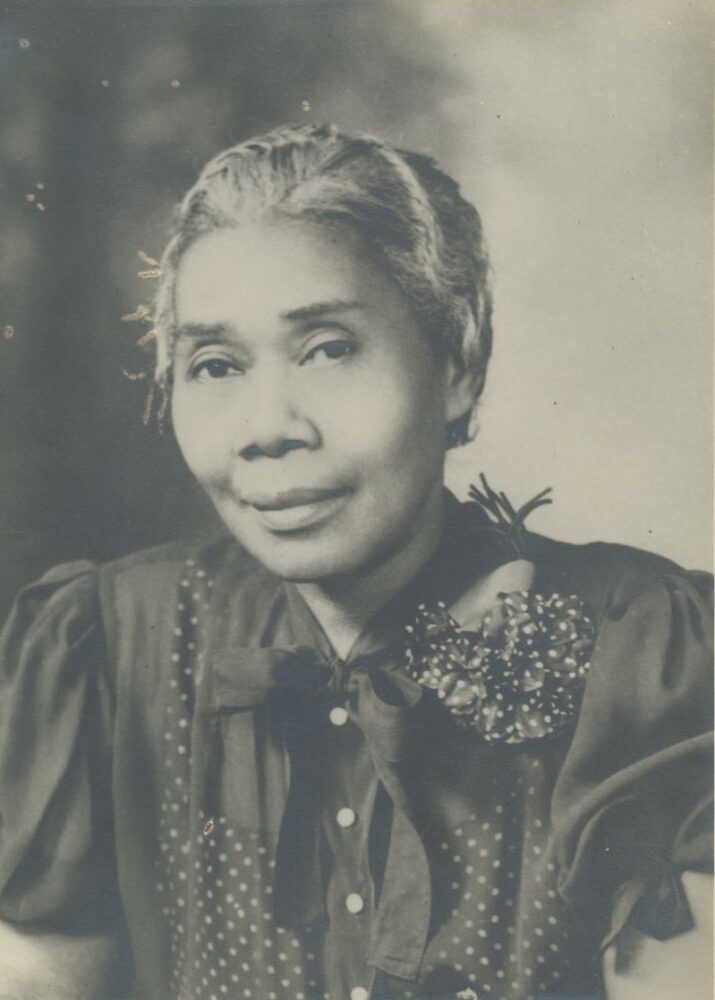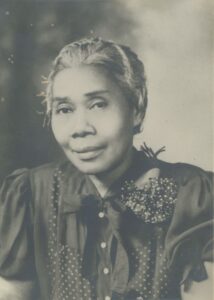Fannie C. Williams
Fannie C. Williams was an educator, community organizer, and civil rights activist.

Courtesy of Amistad Research Center
Fannie C. Williams.
Fannie C. Williams was a New Orleans educator and community organizer who was also involved in the early civil rights struggle as a member of the National Association for the Advancement of Colored People (NAACP).
Williams was born in Biloxi, Mississippi, on March 23, 1882. She moved to New Orleans to attend Straight College (now part of Dillard University), graduating in 1904. She achieved two degrees, a bachelor of arts and a bachelor of pedagogy, from Michigan State Normal College (now East Michigan University) in 1920 and a master of arts from Michigan University in 1938. She taught at various schools in Mississippi from1904 to 1908 and at John Fiske Elementary in Michigan from1908 to 1917. From 1921 to her retirement in 1954, she was principal of Valena C. Jones Jr. School in New Orleans.
In the 1930s Williams was president of the National Association of Teachers in Colored Schools, which later became the American Teachers Association (ATA). The ATA supported Black teachers during the era of legally mandated school segregation, and it merged with the National Education Association in 1966. In 1977 Williams received the Past President’s Award from the American Teacher’s Association and the National Education Association. She was also a trustee of Straight College and a member of Dillard University’s Board of Trustees from 1946 to 1960.
During the Jim Crow era, Louisiana schools were racially separate and unequal. Valena C. Jones Jr. School, a segregated institution for Black students, was situated in New Orleans’s Seventh Ward. Despite segregation, the school both supported and was supported by its community in challenging racial inequalities. Andrew J. Young, civil rights leader, congressman, and US Ambassador to the United Nations (1977–79), attended Jones School in the late 1930 and early 1940s. In his autobiography, he remembered Williams as a strict but inspirational educator who brought African American role models to the school to impress the students, including the singer Marion Anderson, boxer Joe Lewis, and Olympic gold medalist Jesse Owens. Such activities reflected Williams’s idea that education should inspire students to advance Black rights throughout their lives, and, more broadly, the role that female educators had in inspiring their students to join the civil rights movement of the 1950s and 1960s.
Racial pride suffused and informed Williams’s teaching philosophy and philanthropic work. In 1936 Williams was on a New Orleans Colored Public Schools committee that was tasked to review how Black history was taught in public schools—this during a time when history was often taught from an overwhelmingly white and racist perspective. The report, “A Tentative Approach to Negro History,” sought to present positive Black imagery and pride in Black culture, within an integrationist ideal.
Williams embraced a holistic approach to child education, one informed by progressive reformers such as John Dewey. In 1929 Williams started a program in the New Orleans school district that focused on children’s health and raised funds for two dentists to give free care to children. (The scope of this care was later extended to other medical assistance.) This program helped establish a Children’s Health Day, May 1, by which children were encouraged to drink milk, avoid soft drinks, eat hot lunches, and also take flowers to local sick people and the aged. In the early 1940s Williams initiated a Parents Study Group, which sought to address individual children’s social and educational problems in the community and involved students’ families in finding resolutions to educational and behavioral problems.
Williams was a member of and adviser to an impressive array of community organizations. She was the first president of the Board of Management of the African American Branch of the New Orleans YWCA; served as a member of the Board of Directors of the Girl Scouts (and organized Troup 99, the first African American unit in New Orleans, which was based at Jones School) as well as the American Red Cross, Community Chest, and Flint-Goodridge Hospital; and was a representative of the American Missionary Association. As early as 1921 Williams was involved in a campaign to get a three-story brick building for the Jones School as the previous one had been flooded and demolished in 1915, and by 1928, the Orleans Public School Board approved a quarter of a million dollars to help fund the project.
In the 1920s and 1930s Williams was a member of the Federation of Civic Leagues, a New Orleans voter registration group that also sought to assert Black political leadership in the Republican Party in Louisiana. She was also a steadfast member of the NAACP, a nonpartisan, integrationist civil rights organization that had a strong branch in New Orleans, and, due to Williams’s extensive social and professional networks, she effectively led its membership drives in 1935 and 1937. During this period the city’s NAACP branch membership increased considerably to a high of over 1,100 members. In 1946 Williams was on the Joseph A. Hardin Playground Committee that sought to provide facilities and activities for African American children to prevent delinquency in the city.
Williams contributed to three White House conferences. President Herbert Hoover sought her expertise on the Conference on Child Health and Protection (as assistant chair on the subcommittee of the “Negro school child”). President Franklin D. Roosevelt invited her assistance for a conference on housing. She also attended President Harry S. Truman’s Mid-century White House Conference on Children and Youth in 1950.
After Williams retired in 1954, she continued to work on community education projects, tutoring disabled children, and teaching adult literacy and English to immigrants, notably Hispanics. She also volunteered in an adult education program sponsored by the Council of Jewish Women.
She attended the Central Congregational Church in New Orleans, where she served as superintendent of the church school and was a life deaconess. Williams died in New Orleans on June 12, 1980.
Today the Fannie C. Williams Charter School in New Orleans is named in her honor. Her papers can be found at the Amistad Research Center in New Orleans.
